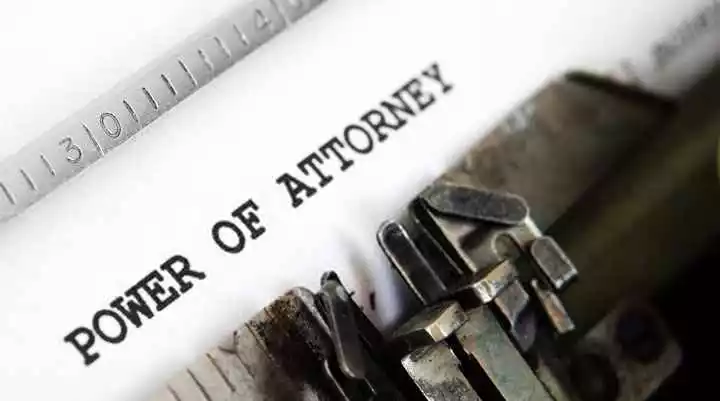A power of attorney is an important legal instrument that may be used for several purposes, but it allows someone else to act on one’s behalf at its most basic level. When a person is unable to submit paperwork in person, a power of attorney is essential. Therefore, they delegated the project to someone else. In a nutshell, it is a legal instrument in which you charge certain legal rights to another person, such as the ability to sell or lease a property. The procedure of obtaining a POA from outside the UAE may appear more complicated than issuing it within the UAE, but it is not impossible. Read this article to know some easy procedures for preparing a POA from Pakistan for usage in the UAE.
Documents Required For Attestation Of Power Of Attorney In Pakistan
- The original power of attorney.
- Deponent’s original Pakistani Passport/NICOP/CNIC and copies of the Passport and NICOP.
- The executant/executants must attach a current passport-size photograph to the Power of Attorney.
- Proof of Residence
- Power of Attorney by a minor would only be attested upon submission of a Court-issued guardianship certificate.
The Procedure Required For Preparing Poa From Pakistan To Be Used In The Uae
1. Determine your POA:
A POA can be either general or specific. A general POA enables your designated attorney-in-fact (also known as “agent”) to conduct any business on your behalf. Still, a specific POA is confined to the activities specified in the instrument. It would be best if you only give a general POA to someone you trust and who is competent in executing transactions on your behalf in an intelligent manner. It is also worth mentioning that, in line with local regulations, you may only issue a specific POA containing all the property information in question to sell a property in the UAE.
2. Get it Written
Once you’ve determined what form of POA is best for your needs, the next step is to get it written. Without a doubt, this is the most critical phase. It is essential to ensure that your POA is written correctly and professionally and accurately communicates your circumstances. This method reduces the chance of POA rejection from third parties and/or government bodies at a later stage, saving you time and money.
3. Notarization
Your POA will need to be notarized once it has been prepared and suited to your unique circumstances. The procedure of notarization differs depending on where you live. Thus, if you are issuing a POA in Pakistan, the applicant must appear in person before the consular official at the Consulate, accompanied by their original passport or NICOP. The document must be signed in front of the consular official by the applicant. A fee is payable per executant/applicant if more than one person executes a Power of Attorney.
The Consulate General attests the Executant (s)’ signature(s) and accepts no responsibility for the contents or legitimacy of the Power of Attorney. Two witnesses must sign the Power of Attorney, and their names and Pakistani ID numbers must be provided. Before bringing the document to the Consulate for attestation, the applicant should obtain the signatures of the witnesses and their ID numbers.
4. Legalization
If you want to utilize the POA outside of the nation where it was given, i.e. Pakistan, this step is critical. Legalization is the procedure by which a government authority (typically a ministry of foreign affairs) certifies that a solicitor’s or notary’s signature on a power of attorney is genuine and should be accepted in a foreign nation, in our instance, the UAE. The government agency’s name that legalizes your POA is determined by the nation in which it was issued.
An Executor must present a passport-sized photograph and an authentic identity card to the local District Registrar when making a Power of Attorney for UAE for sales, purchases, or collection of dues, etc. In the event of death, the succession certificate / Guardian Certificate issued by a Civil Judge / Judicial Magistrate is required to attest Power of Attorney. All Powers of Attorney presented overseas must be prepared on stamp paper and include passport-size photos of the Executant.
5. Embassy of the United Arab Emirates attestation
You should next contact the UAE Embassy or Consulate of Pakistan to get it certified. It is worth contacting the Embassy/Consulate directly for advice on the procedure, as it varies from country to country. The UAE Embassy/Consulate will also advise you on the fees and deadlines for this procedure. It is the final step you must do in Pakistan, where your POA was issued.
6. Legalization in the United Arab Emirates
The final step is to formalize your POA with the UAE Ministry of Foreign Affairs (MOFA). This procedure is also known as “super legalization.” You do not need to be in the UAE to accomplish this stage. The Dubai Public Notary can assist with the legalization of MOFA in the UAE.
Read This Also: Ways a Family Dispute Lawyer Can Help You: A Family Law Guide
7. Translation into Arabic
The final step in ensuring that your POA is functional and practical in the UAE is to translate it into Arabic. It’s worth noting that the translator must have a UAE Ministry of Justice license. When you order a POA from us, we can additionally provide Arabic translation. Dubai Public Notary works with some of the region’s best and most reliable translators. We are explaining the topic in this article as a general overview. If you have a particular situation, you should seek professional counsel. The attestation of a POA might take a long time. Depending on the language of the power of attorney and the backlog of the relevant ministries, it might take two to four weeks. It is recommended that you obtain the assistance of professionals to verify that you are following the POA’s legalization procedure appropriately. Experts frequently help customers in getting POAs authorized across different ministries at Notary Public Dubai.

